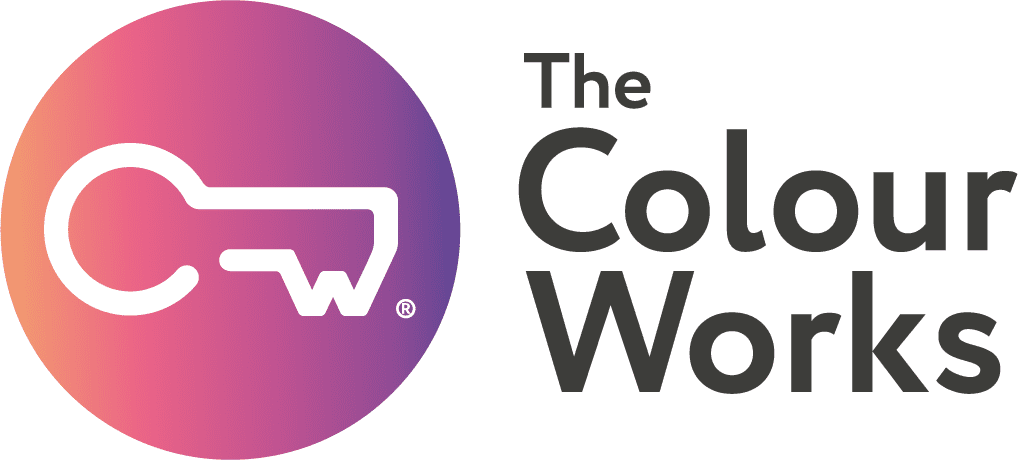Hybrid Working – Good News, Bad News? Who Can Say?! based on research conducted in July 2021

Background
At The Colour Works we support a network of over 170 Learning and Development specialists known as Client Practitioners who are accredited to deliver the Discovery model within their organisation.
Along with various other perks we host a selection of free-to-attend development sessions each year, offering an opportunity for learning, sharing, supporting and networking. We keep these sessions small and intimate, so everyone has a voice and gets value out of the conversations that take place.
During one of these sessions, we welcomed nineteen practitioners from fourteen different organisations to a Zoom workshop to share ideas and observations on hybrid working (HW). All participants were invited to offer their views on the pros and cons of HW styles. Each organisation had previously adopted HW as a company approach to a lesser or greater extent. Data was collected via written statements from each participant and interrogated using Grounded Theory methodology.
Analysis
Participants were asked what they thought about the method of HW and how it had affected them over the last 18 months.
A number of themes emerged both in favour and against HW. By far the greatest area of comment was around work/life balance for all participant responses. The positive and negative aspects of HW were outlined in four other key areas; physical, technological, social and equality.
Additionally, financial and efficiency considerations were at the forefront of the ‘pro’ statements. In terms of the more negative aspects proposed by the participants, ability, emotional factors, non-verbal signs, and organisation issues all featured.
Keen to see the data? Skip to the end of this blog.
Comment
Although remote, hybrid, and distributed teamworking has been in place for over 40 years, we have never had such a global movement to work in this way which undoubtedly amplifies the issues. The analysis from this small subject group has highlighted the need for us all to be better prepared to combat the cons as we establish our working practice.
As part of the session, we explored some research carried out by Mark Mortenson and Martine Haas (both organisational behaviour change experts who have studied remote, hybrid and distributed team dynamics for several years). This research underpins some of the key competencies of outstanding hybrid workers and managers.The outstanding hybrid worker has:
- The ability to think and act adaptively
- Capability in navigating complex situations
- A proactive disposition
- The motivation to network
The outstanding hybrid manager shows:
- Fairness - airtime, attention, resources
- Openness - vulnerability, information, expectations
- Clarity - roles, responsibilities, objectives
- Communication – frequent, adaptive, appreciative
- Consistency - ownership, follow through, rigour
At The Colour Works we like to keep it simple and prefer not to jargonise or overcomplicate what we do. Simply put, we work with teams and increase performance through a greater understanding of self, and by improving workplace relationships. If your hybrid team can just focus on these two fundamental enablers you will build trust and the rest will follow, and if you need a little help, give us a call.
Data
A total of 88 statements were collected. Just over one third (37.5%) of the responses received related to the positive aspects of HW, and 62.5% of statements collected related to the ‘cons’.
Where duplication occurs, statements have been merged.
PROS
Work/life balance
‘More focus – less distraction to be pulled into ‘drive-by’
‘No meetings over lunchtime, 55-minute meetings so comfort break’
‘Higher energy at start of day – not drained by travel’
‘Flexibility on when and how to work’
Technological
‘Software innovations – proficiency increases, new solutions for comms’
‘Knowledge sharing and new technology embeds well’
Social
‘More focus – less distractions to be pulled into the drive-through’
‘Brings people together – breaks down the silos’
Finance
‘Cost saving business: office space, facilities’
Cost saving – travel, expenses, lunch, coffee, clothes’
Physical location
‘Productivity – saves time not travelling’
‘Access to more talent’
‘Accessibility – mobility’
Equality
‘Flexibility, when and how to work’
‘Inclusive for those with children, online recruitment indicating less bias present’
‘Candidate pool of applicants for job roles’
‘Childcare benefits’
Efficiency
‘Trust - people are doing what they should be doing’
‘People are typically on time and ready for a meeting’
‘Accessibility – mobility’
‘Agile working environment which encourages a change-ready mindset’
CONS
Work/life balance
‘Mental health and wellbeing – not separating home/work divide’
‘Presenteeism – turning off from work and how more difficult. It’s just too easy to switch back on and do that email’
‘Working at home vs living at work!’
‘Had to get time blocked out in diary to do the basics – constant availability is a problem. People expect you to be free’
‘Too much screen time’
Physical location/practical
‘I’m not commuting so I will work late’
‘Tech fails’
‘Childcare’
‘Cost of travel when asked to come in’
‘Home and work collide’
Technological
‘Having tech issues and no one right there to sort’
‘Difficulty in learning new technology when at home alone’
‘Not leaving enough times between meetings as tech speeds it up’
Emotional factors
‘Team connections not being made as easily’
‘Fatigue from early lockdown’
‘More challenging to keep an eye on people’s wellbeing – the person who logs on with a well composed face isn’t always in a good place’
‘Missing the energy from people to bring you up’
‘Challenge of having honest/difficult conversations re performance/redundancy remotely rather than face to face’
Organisational issues
‘Challenge of involving all in deciding what hybrid looks like’
Mindset and future proofing working methods’
‘No framework to learn best practices from at this point’
‘Not focusing on covid as the driver for hybrid working moving forward’
‘Ensuring those who joined during lockdown still feel a belonging to the organisation – importance of induction’
‘Everyone worldwide is learning about hybrid working as we go’
Social
‘Missing ways to replace watercooler conversations/check-ins/pub quizzes/beginning-end of day catch ups’
‘Missing spontaneity of passing conversations and quick catch ups – corridor chats’
‘More formal – less casual meeting structures’
‘Less social connectivity and interaction’
Equality
‘Anxiety about not being visible’
‘Trust not being built equally’
‘Decisions being made that involve remote workers but not actually being involved in them as not on site’
‘Competition between office and remote workers, favouritism between the manager’
‘Information being shared faster with those in the office’
‘Silo working – the divide between those in the office and not’
‘Trust – traditional thinking around presenteeism, micromanaged’
Ability
‘Difficulty of managers consistently applying hybrid’
‘Manager capability and leadership’
‘Has communication reached the right people when they needed it, and has it been understood’
‘Increased competition for roles when location not bound’
‘Career benefits of meeting other people in other departments limited if remote’
Non-verbal signs
‘Can’t fully see/read responses – eyes and below shoulder responses’
‘Not picking up non-verbal clues’




